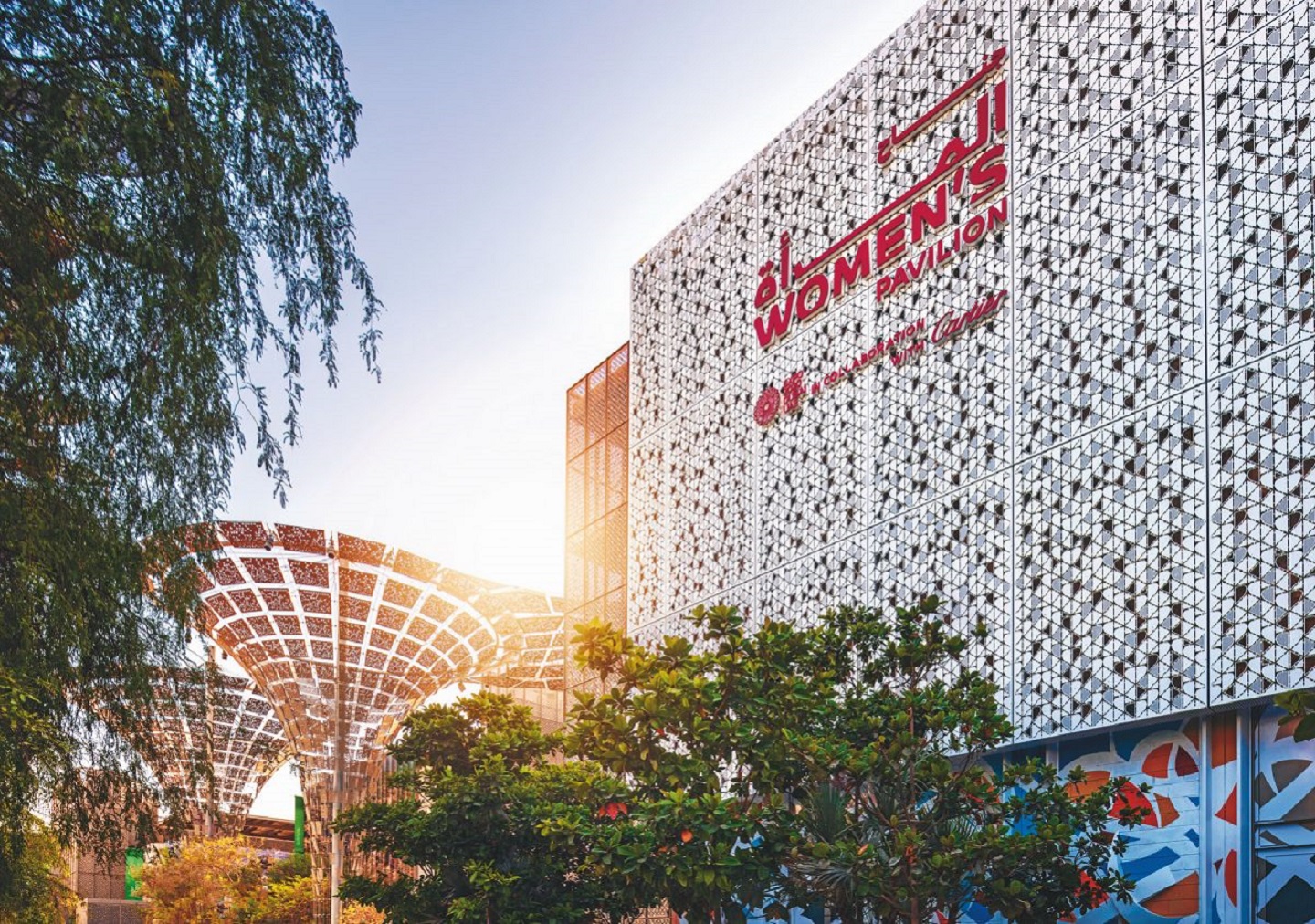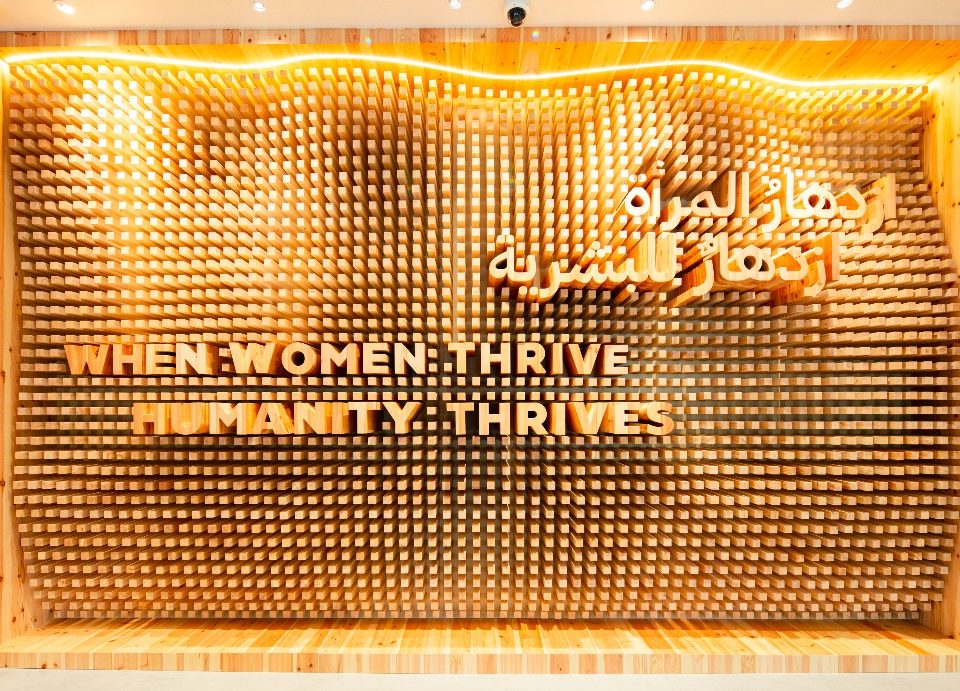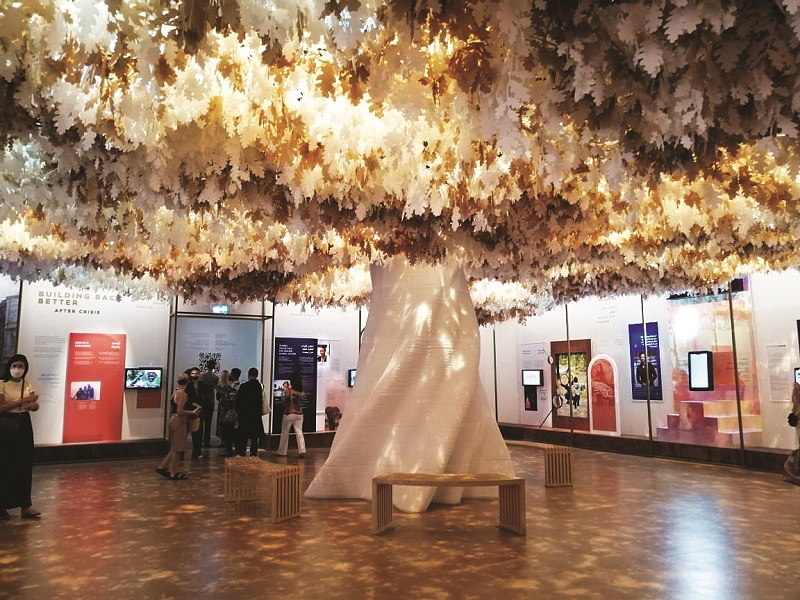
The French luxury brand, in collaboration with Expo 2020 Dubai, has a Women’s Pavilion built on the belief that when women thrive, humanity thrives (All photos: Cartier)
Cartier president and CEO Cyrille Vigneron has a quiet way of distilling the purpose of the Cartier Women’s Initiative (CWI) and drawing people into what it is all about.
“Basically, everything starts from the kind of firm conviction that something can be done. You get something around a problem that could not be fixed and someone saying, ‘We cannot make it’. Then one person says, ‘I will do it’. And against the odds, against family, friends and everything, she does. Most of the businesses succeed and continue to act for good.”
Vigneron was speaking to CWI laureates, jury members and coaches gathered in Dubai a fortnight ago to celebrate the programme’s 15th anniversary, with a series of activities punctuated by the joy of reunion, the delight of making new friends and the buzz of connecting with like-minded doers and thinkers.
True to the generosity of a man who acknowledges women can do everything men can, but there is one thing men could never could do — deliver babies — Vigneron salutes the maison’s guests. “Each and every time I have had occasion to meet you fellows and friends, I think, ‘Oh my god, what have I done with my life?’ Some of you start so early and you are young entrepreneurial leaders who can talk so eloquently. And again, I think, ‘I really have to hurry, do something useful for the world’.”
Cartier has done plenty through its international initiative which helps women grow businesses that have a strong and sustainable social or environmental impact and builds leadership skills so they can power change. The CWI also creates opportunities for its cohorts so they can serve their respective communities.
For the first time at the world exhibition, the French luxury brand, in collaboration with Expo 2020 Dubai, has a Women’s Pavilion built on the belief that when women thrive, humanity thrives. Over six months, from last October to March 31, visitors have flocked to explore and engage with exhibitions, videos, narratives and programmes that reveal the roles of women — newsmakers and unknowns — from past to present. The Pavilion aims to shatter the mould of female stereotypes and show how women, together with men, have aspired towards gender equality in various areas, including politics, law, education, technology, enterprise, the arts and sport.
dubai_1.jpg

Seemingly ordinary women who dared go against the grain because they believed in themselves have gone down in history as role models who blazed new trails for others. One sport icon is American runner Kathrine Virginia Switzer, who registered for the Boston Marathon in 1967 under her initials, KV Switzer, because even her own coach had insisted “the distance was too long for fragile women to run”.
The race director tried to nudge her off the road but she persisted and crossed the line at 42.2km, officially becoming the first woman to enter that marathon. Photos at the Expo show Switzer in action and one has this memorable quote: “I’m going to finish the race on my hands and my knees. Because if I don’t finish the race, everyone is going to believe that women can’t do it.”
Among those who contributed to the design and curation of the Pavilion were Lebanese activist, actress and director Nadine Labaki and multidisciplinary artist eL Seed, who met with members of the media to share stories behind their projects for the Expo.
Nadine, the first female Arab filmmaker to be nominated for Best Foreign Language Film, for refugee drama Capernaum, directed the movie that leads into the Pavilion, centred on the question: What is the change you want to make? She travelled the world asking girls that. Whe the coronavirus halted travel, she listened as they responded via Zoom calls, while grappling with poor internet connection in a forest where she lived during the pandemic.
“Those girls taught me nothing is impossible no matter where you come from. No matter how difficult it got, there was something that [kept] the faith within them, that whispered in their head, ‘What you are doing needs to see the light. People are prepared to help you see your vision’.”
The alternative ideas those youngsters had were small and simple, but made things better for their communities, such as filtering water in a bottle filled with discarded corn cobs.
eL Seed’s design for the lower part of the Pavilion’s façade, which combines calligraphy and art, was inspired by an installation he did in a tiny village near Kathmandu to highlight how a handful of Nepalese women rebuilt their homes after an earthquake in 2015 destroyed everything around them. Living with them and watching them work, he was moved to tears by their resilience and strength.
dubai.jpg

French actress, screenwriter and director Mélanie Laurent, whose immersive video combined with virtual reality show what women around the world have in common, was touched by the companionable silence and trust of a Japanese guide who spent three days with her in a primary forest without saying a word.
“Every time we met a woman, there was this moment of pure generosity. When we had to stop travelling [because of Covid], the generosity was again everywhere. People understood obviously and also tried to find solutions.”
Women talking about their experiences with others often admit that they had so many emotions. “I think that’s the most beautiful thing about women — being able to say we cry, and not be afraid of that. If we cry, it doesn’t mean we are not strong; it’s the opposite,” says Laurent.
Cartier and Expo 2020 marked International Women’s Day on March 8 at the Al-Wasl Plaza through music, poetry, song, dance and a dazzling display of lights that reflected the exuberance of women who freely laugh and cry, work hard and play harder. Guests and organisers stepped up to present or rally support for the theme of this year’s event, Break the Bias.
Cartier ambassador Rami Malik read New Day’s Lyric by American poet and activist Amanda Gorman, which talks about opportunity and possibility, and exhorted men to tear down the obstacles they have placed in women’s way. Vigneron said change cannot happen without men and it had to start at home, with parents making a conscious effort to not perpetuate outdated gender roles. Women need to stop spoiling their sons and teaching their daughters to serve, and every man should feel responsible for women’s empowerment.
Bangladeshi Prime Minister Sheikh Hasina, diplomatic adviser to the UAE president Dr Anwar Gargash, World Trade Organization director-general Dr Ngozi Okonjo-Iweala and UNFPA executive director Dr Natalia Kanem joined in the International Women’s Day celebration physically or remotely at a forum titled Redefining the Future of Women.
img-20220315-wa0002_1.jpg

Gargash emphasised that change does not happen because of good intentions or that it is the right thing to do. Or even by allowing things to balance themselves out naturally. An activist agenda is necessary to close the gender gap, supported by legislation that can break new frontiers, he said.
Okonjo-Iweala expanded on that. “Giving women equal opportunity is not about being kind or moral or charitable. It’s really about allowing society to benefit economically in a way it would not when women and girls are left out.”
Policies and laws are important but implementation is necessary to make things happen, she added. On top of policy change, attitudinal change is vital. “We need to educate people that women are not a threat. Women in leadership is something that is good for society.”
Looking around him at the Arab world, Gargash talked about the need to be on guard because there has been a “regression of women’s rights in what were traditionally leading metropolises. These are places that have had a head start over the UAE in education and what I would call social liberalisation. It’s about policy, implementation and understanding that enabling women is also something we need to protect and support. Passivity will not serve us well”.
With all these conversations going on about enterprise and empowerment, it will be exciting to see what’s in store at Expo 2025 in Osaka, Japan, and the 2023 edition of the CWI, of course.
This article first appeared on Mar 21, 2022 in The Edge Malaysia.


